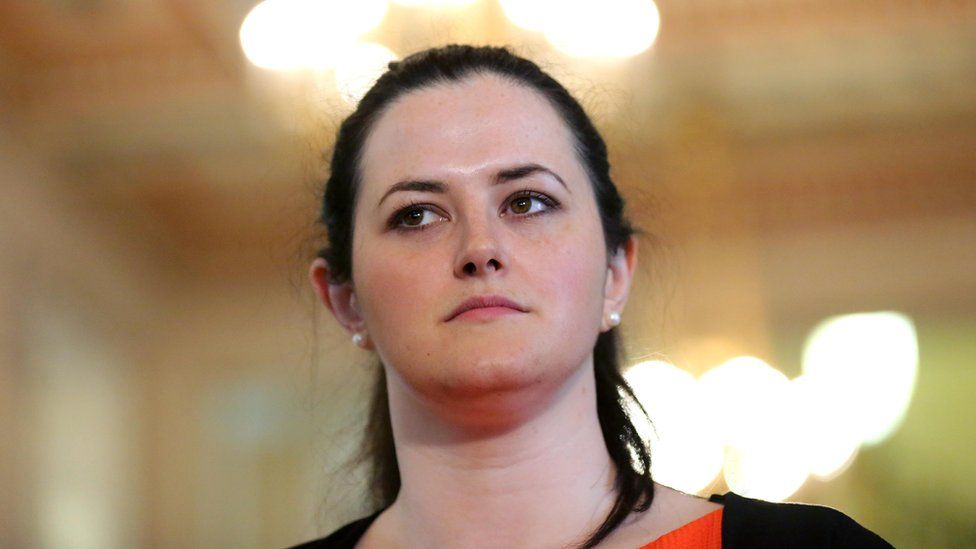
Independent assembly member Claire Sugden took up the position of justice minister in 2016
A former justice minister has called for an “end-to-end” investigation into Northern Ireland policing on the same scale as the Patten report.
Claire Sugden told the BBC’s Sunday Politics that “pressures on the police seem to come from where other public services have failed”.
She was speaking amid an ongoing leadership crisis within the PSNI.
His resignation followed two major controversies for the Police Service of Northern Ireland (PSNI) in succession.
Firstly, in August, a number of data breaches came to light, including one where the names and details of the PSNI’s 10,000 officers and civilian staff were published in error as part of a Freedom of Information request.
Mr Byrne later said the information was in the hands of dissident republicans, who could use the list to generate “fear and uncertainty”.
PSNI chief Simon Byrne’s resignation explained in 135 seconds
An independent-led review is due to be carried out into the breaches.
Then, last Tuesday, a court ruled two junior officers were unlawfully disciplined following an arrest at a Troubles commemoration in February 2021.
The Department of Justice has agreed to carry out a review of the Policing Board, which oversees the PSNI.
But independent MLA Claire Sugden said there was a need for a review of the entire policing system, on the scale of the Patten report.
“I think we need to go much wider… this isn’t the only issue in the last number of years,” she told the BBC.
What was the Patten Report?
Lord Patten chaired the Police Review Commission into the future of the policing in Northern Ireland.
Reform via the Patten Commission Report was a key part of the peace process.
The report, issued in September 1999, recommended 175 changes to the Royal Ulster Constabulary (RUC) including a new name, a new badge, and a new police board which includes members of all parties entitled to seats in the Assembly Executive, including Sinn Féin.
“Taking the politics out of policing” was a key part of his report.
It also introduced 50:50 recruitment, meaning that one half of new recruits would be Catholic and one half “Protestant or undetermined”.
This arrangement, which was introduced to address religious imbalance within the force, was ended in 2011.
Ms Sugden, who served as justice minister from May 2016 to March 2017, said any potential review would have to look at the PSNI’s wider operations and its place within the context of other public services in Northern Ireland.
Ms Sugden added that disfunction within the PSNI was “tarnishing” rank-and-file officers who “go out and do a very dangerous job on a day-to-day basis”.
“We have a whole culture issue, particularly around stuff in relation to misogyny within the police force,” she said.
“Certainly if we were moving forward in this, I think we need to look at it much more widely because the pressures on the police tend to come from where other public services have failed,” Ms Sugden added.
“If people ask me: ‘Claire, the police didn’t come to my door after an attempted burglary?’
“I could be pretty sure those police officers are sitting at Causeway Hospital on a Saturday night, attending to mental health patients.
“That’s not what their job is. But that’s where the resources are going.”
Ms Sugden said she had discussed the possibility of a wider review with former chief constable George Hamilton during her time as justice minister.
“And here we are, seven years on, and I think we’re starting to see the cracks more apparently,
“Certainly the public are starting to see them now.”








